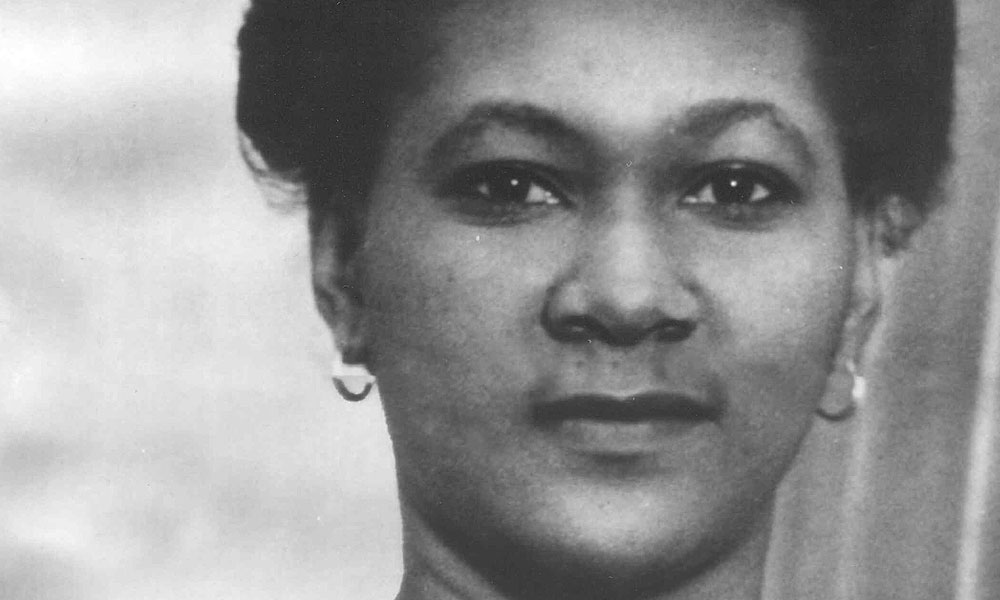
Between 1829 and 1839, Samuel Cable was the editor of the St. Christopher Advertiser and Weekly Intelligencer, a family-owned newspaper founded c. 1782. He was a member of a free coloured family that had originated in Antigua and had welcomed Thomas Coke to St. Kitts when he was working at establishing the Methodist Church in the region. The Cables, like so many others of their class owned domestic slaves and used skilled slaves in their printing office but were themselves subject to the injustices of the racial hierarchy of the British West Indies.
Newspapers owned by free coloureds were rare at this time. The [Antigua] Weekly Register and The Jamaica Watchman were both outspoken opponents of slavery. The Grenada Chronicle, on the other hand, argued against the abolition of slavery. The Advertiser owed its strength to a larger audience than that of its Kittitian rival, the St. Christopher Gazette. There were approximately 3000 free coloureds, with a strong sense of racial solidarity, as opposed to 1600 whites. Despite the numbers, the Cables were cautious in expressing political opinions.
However in 1823, Samuel Cable was one of forty men who signed a petition of protest which deplored the disadvantaged position of the free coloureds of St. Kitts and which was sent to the British Government. They especially complained about the fact they contributed financially to the public administrations but yet were excluded from all decision making bodies. They also resented the fact that they were not allowed to sit on juries, and were debarred from practicing law. The petition also noted that a school for destitute children supported by public funds to which the free coloured contributed would not cater for children of coloured parents. In describing the situation in the years 1807 to 1810 John Augustine Waller wrote “No property, however considerable, can ever raise a man or woman of colour, not even when combined with education, to the proper rank of a human being, in the estimation of an English or Dutch Creole. They were always kept at a respectful distance.”
A Committee of the Assembly recommended that the elective franchise should be extended to the free persons of colour in the same manner as it is enjoyed by white persons and that restrictive legislation should be repealed. This the Committee felt was ‘the fullest boon that can be awarded by the Legislature without interfering with the long established and necessary policy of this country’. Another petition signed by Cable and fifteen other men was sent to the Council in July 1828 again requested that the contribution of the free coloureds be recognised and laws adjusted to reflect the improved circumstances of that class. In a letter dated 5th October 1829, Governor Maxwell encouraged the Assembly to modify the restriction and disabling regulations of a less enlightened age. Act 524 passed in 1830 granted Samuel Cable and thirteen other free coloureds ‘the right to enjoy all the civil rights, privileges and immunities of other free citizens.’ At the time, it took special dispensation for a free man of colour to enjoy any of the rights and privileges his white counterparts took for granted even when he qualified on grounds of property or education.
In June 1832, The Advertiser expressed approval on the decision of the Antigua Assembly to grant full civil and political rights to the free coloureds. It however complained that such Acts to regulate the trial of criminal slaves, to enforce compulsory manumission, to admit slave evidence which had received approval in Council were still uncertain of acceptance by the Assembly. There was a sense of jubilation when only a few months later the reforms were approved.
In regional coloured circles, however Cable’s paper was not considered “really independent” or one that would “dare, in the face of danger ... to advocate the cause of the oppressed and deeply injured sons and daughters of Africa.” Cable’s first priority in the years before emancipation focused on the improvements desired by his class. Like the rest of his class, he wanted to enjoy the same rights and privileges as the whites and envisioned progress through the legitimate means available to him.
It was not till after the abolition of slavery in 1834 that The Advertiser showed significant political direction on the matter of emancipation. Samuel Cable infuriated the local planters by implying that they were manipulating the justice system. He was sited for contempt, and sentenced to three months in jail and fined £300 for contempt of court in September 1835. The cause was Cable’s questioning of the white planters’ fitness to judge appeals against the workings of the apprenticeship system when they obviously wanted to wrest as much labour as possible out of their former slaves . In July 1835, Special Magistrate William Thomson ruled in favour of two skilled apprentices, a cooper and a blacksmith, who complained of being forced to perform field labour. The Court of King’s Bench overruled the decision and Cable openly criticized the reversal. Commenting on a the outcome of a case, the editor observed
Constituted as the court is, the majority of its members have a direct interest in reaching conclusion to which they have attained.
He was found guilty of contempt of Court and given the chance to print an apology. However the apology that Cable did print was said to have compounded the original insult. In his petition to the President of St. Kitts, Cable expressed concern regarding effect that the decision of the court would have on the plight of apprentices on the island.
The St. Kitts oligarchy had yet to come to terms with a free press. The existence of a free press was not a matter for debate. Newspapers were an integral part of colonial life. It was the extent to which the press was free to air cases of corruption and malpractice in colonial judiciaries that was at issue. Samuel Cable viewed the matter in terms of the freedom and responsibility of the press to report on judicial corruption.
We are but humble journalists, but we trust, we are also acquainted with our duties and sensible of our responsibilities, in such our less lofty capacity. We know the rights of the press; we believe those rights to form one of the most effectual guards of civil freedom; for those rights we are prepared to encounter the spoiling of our goods, the imprisonment of our persons, the peril of our lives.
It took the intervention of the Governor to secure his release on the 18th October 1835. This action was endorsed by the Colonial Office which saw it as an opportunity to take a stand on matters of judicial corruption.
Samuel Cable died on the 5th November 1839 at the age of forty-three years.




